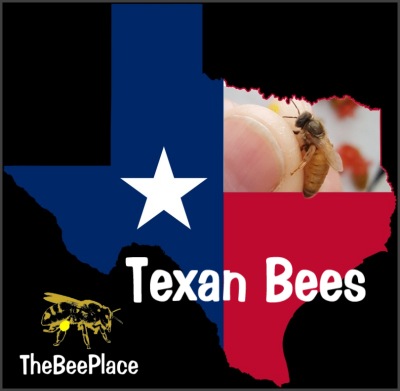| Texan Honey Bees | |||
|
History and Background
of our Texan Bees |
|||

|
|||
|
These are our own blend of mite resistant hygienic bees derived from a variety of
"survivor stock" mixed with VSH lines imported from some of the top queen breeders
around the country that raise gentle queen stock outside of Africanized bee territory.
(We only breed from queens with the best records) As the results of grafting produce healthy virgin queen cells (as shown in the photos below) they are placed into mating nucs that reside in special yards for the purpose of mating primarily with drones of our choice. Since these yards are surrounded by gentle hives of VSH Italian, Carniolan and Pol-Line genetics, they have very strong drone populations in a 2 mile radius. This is the distance queens typically travel on their mating flights, which is a mile or more from the range of their offspring drones back at their hives. This prevents inbreeding and insures the drone genes are unrelated to the queens. Over the last several years these lines have shown promising results. Not only in our own yards, but also from the feedback we receive from customers that have been using these lines for several years. In the beginning, these "Texans", or "Bee Place Bees" as our crew calls them, tended to be a little on the "spicy" side. After many years of mixing with more and more gentle bees from VSH Italian and Carniolan lines we are finding they are not nearly as spicy as they were five years ago, yet they are still maintaining low mite numbers with little to no mite treatments. This is good news for those of us that want to become "treatment free beekeepers" and enjoy working bees without full protective gear. (Like our granddads used to do) We still keep our veils handy because we occasionally get into a "grumpy" hive and we would rather be safe than sorry, but we are finding less and less grumpy hives as we make progress with these lines. However, they are honey bees and pretty much all honey bees have mites, but they are learning to co-exist and it appears they are building resistances to the issues caused by the mites. With that said, we recommend checking for mites and treating as needed. That is what we do and will continue to do until the bees are able to completely overcome the problems caused by mites. There is more good news on the horizon... In June of 2024 we brought in some Gold Coast Queens for the additional genetics that have proven to be very mite resistant in northern California and also very gentle bees. Our goal is to include these genes into our local pools and see how they do in our south Texas ecosystems. Only time will tell, but we are pleased so far. |
|||
|
|
|||
|
Below are several images that show the various components and phases of grafting. (click to enlarge) |
|||
|
•
Types of Bees
•
Italian Bees
•
Pol-Line Bees
•
Texan Bees
•
|
|||
|
|
|||
|
|||
|
|